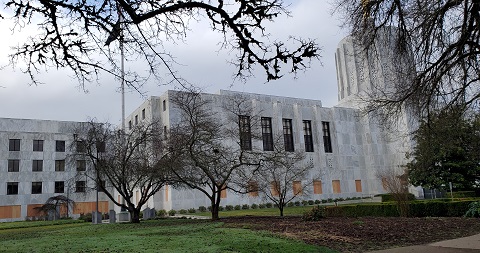





| Benton County Republicans’ Private Fundraising Event, “Bent-on Boots and Bling” with Trey Taylor |
| Friday, September 5, 2025 at 5:00 pm |
| Featuring Trey Taylor Music Private Event Friday, September 5, 2025 5:00-5:30 pm VIP Reception 5:30-8:00 pm Heavy Appetizers, Auction, Concert Red: $750 VIP Reception Front Row Table Sponsor White: $500 Table Sponsor Blue: $50 per person Limited Seating. Get Yours Now!!! Support Local Dress up: Bling, Cowboy, Patriotic Benton County Republican FUNDRAISER www.BentonGOP.org Get your tickets today at: https://www.bentongop.org/event-details/benton-county-republicans-fundraiser/form About Trey: Trey is the youngest African American Man in Country Music History. The Denver Post wrote "It's impossible to miss his enthusiasm. With a fondness for cowboy boots, gaudy colors and dazzling jewelry, Trey Taylor could stand toe to toe with any of the Pop, Country or even Rap contemporaries of his generation.“ |
| Trysting Tree Golf Club, 34028 NE Electric Rd., Corvallis |

Because the virus that causes COVID-19 is transmitted through the air and between people who are in close proximity, the Legislative Assembly’s decision to keep the Capitol physically closed to the public while requiring contemporaneous broadcast of all legislative proceedings is not an arbitrary or unreasonable decision, and does not go beyond what is reasonably necessary to enable the legislature to make urgent policy decisions pertaining to the state’s response to the virus and other urgent matters.
In their conclusion, they answered several specific questions asked by Representative Owens, including "Is it legal to close off physical access by the public to the Capitol building for committee meetings and floor sessions? How does that impact public participation?"Answer: We conclude that it is legal to limit physical access to the Capitol building during the COVID-19 pandemic, for the reasons described in “Overview†above. Public participation in the legislative process is preserved because House and Senate rules require the public to be able to observe legislative proceedings as the proceedings are occurring, and to be allowed to testify, using electronic means, when legislative committees conduct public hearings.
Interestingly, Legislative Counsel uses "transmitted through the air and between people who are in close proximity" as much of the justification for closing the Capitol -- more a biological and medical analysis than a legal one -- a justification which almost comically flies in the face of currently allowed practices throughout the state. It would be interesting to see how many Legislators who support the closure of the Capitol based on the transmissibility of the disease, frequent Costco, Fred Meyer, Wal-Mart or other places in which people are in even closer proximity than they are in the Capitol. Legislative Counsel seems to be at peace with this double standard.First, it noted that the exclusion of the public "tends to impress the jury with the enormity of the offense for which the accused is to be tried." Second, it noted that a spectator at a trial might hear testimony that would cause the spectator to "recall facts to which he will call attention, and thus aid in establishing the innocence of the accused." Third, the court concluded that the presence of friends and supporters of a criminal defendant could serve to offset the prejudice incident to being charged with a crime. Finally, the court noted that the presence of friends and supporters of witnesses could "enable the court and jury to elicit from that witness the testimony to which the defense or prosecution is entitled."
Amazingly, Legislative Counsel failed to consider this case, which bears on Representative Owens' point that live public participation does have an impact on the process. Instead, Legislative Counsel rests on how they think the disease is transmitted.| Post Date: 2021-01-30 17:27:13 | Last Update: 2021-01-30 18:34:50 |